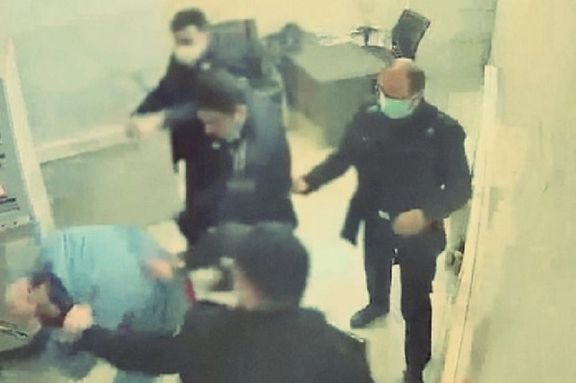Hackers Release Iran Judicial Documents On Foreign Tribunals

Hackers have released what they say are judiciary papers asking state spokesmen to say that ad hoc tribunals and a foreign court case broke international law.

Hackers have released what they say are judiciary papers asking state spokesmen to say that ad hoc tribunals and a foreign court case broke international law.
The two documents categorized as “highly confidential” were passed last week by hackers Edalat-e Ali (Ali's Justice) to Iran International and other foreign Persian-language media outlets. There was also a document attributed to the Revolutionary Guards (IRGC) according to which discontent in Iran has tripled in a year.
The first document, purportedly a letter from the deputy prosecutor responsible for international cases to Tehran Revolutionary Prosecutor Ali Alghasi Mehr, refers to the London ‘Iran Atrocities Tribunal’ considering the 2019 fuel protests, the Iran Tribunal formed in The Hague in 2007 reviewing 1988 prison executions, and the Stockholm trial of former prison guard Hamid Nouri (Noury) over the 1988 executions.
In his letter, Mostafa Seyed Ashrafi, the deputy prosecutor, said that the foreign ministry, international affairs department in the president's office, government spokesman, judiciary spokesman, and the judiciary's Human Rights Headquarters should actively "explain that these tribunals and trials violate international laws.”

The letter, dated November 15, 2021, also advised unauthorized officials to "avoid making remarks on these events that may bear costs to the country,” citing a claim by deputy parliament speaker Hassan Norouzi, later denied, that he had been “one of those people” who opened fire during the 2019 disturbances.
Whereas the London and The Hague tribunals are non-state bodies whose ‘findings’ are symbolic or political, the Stockholm trial is conducted under Swedish law according to a principle of universal jurisdiction. Noury, who denies the charges, was arrested in 2019 and has been widely reported as guilty.
The second document, dated October 11 2020, is a letter from the International Deputy of the Judiciary Ali Bagheri-Kani, now deputy foreign minister, to then chief justice Ebrahim Raisi, after he visited Greater Tehran Penitentiary and met prisoners sentenced over the 2019 disturbances.
Prison visit
The letter said that people aged 19 to 27, who made up a large proportion of those jailed, had told him they had been coerced into confessing and suggested the cases should be reinvestigated and perhaps included in an amnesty that Supreme Leader Ali Khamenei was reportedly planning.
"All of them wanted to be freed at least conditionally,” the letter said. “Some of the younger ones begged and even cried and asked for help.” Such measures would "hugely blunt the sharp blades of the Western and human rights organizations,” it claimed.
The Edalat-e Ali hackers appeared last August in circulating footage from security cameras in Tehran's Evin prison and more recently hacked into state television's coverage of an Iran-United Arab Emirates football match with a video showing Guy Fox masks from the 2005 US-British film V for Vendetta.
The group, whose provenance remains unknown, claimed they wanted to turn the ten-day celebration of the 1979 Revolution into "the funeral of the Islamic Republic.”
Edalat-e Ali group's name evokes the first of the twelve Shiite Imams, Ali, but may also refer to Supreme Leader Ali Khamenei.